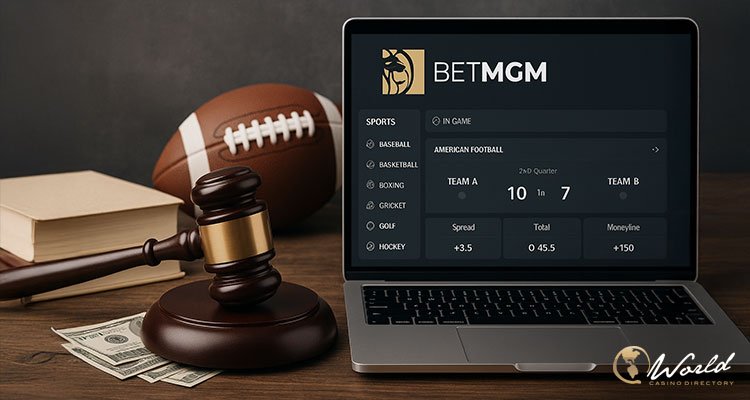Colorado gambling regulators have issued another enforcement action against a major sportsbook, this time penalizing BetMGM for taking wagers that the state explicitly prohibits. The operator accepted a series of college player prop bets across several sporting events, becoming the second book this year to face disciplinary action for the same violation.
During a meeting held Nov. 20, the Colorado Limited Gaming Control Commission (LGCC) approved a $50,000 fine against BetMGM after the company acknowledged its compliance failures. Although the full penalty is assessed at $50,000, only $25,000 must be paid immediately. The remaining half will be suspended for two years and dismissed entirely if BetMGM avoids any further violations during that period.
In addition to the monetary penalty, BetMGM agreed to provide evidence that its trading team—those responsible for setting and managing betting markets—is being properly trained on Colorado’s restrictions surrounding college wagering.
Betting on collegiate teams and game results is legal in the state. However, wagers tied to individual college athletes’ performances remain strictly prohibited. Regulators emphasize that a bet on an NFL kicker’s success during a quarter is allowed, but the same type of wager on a University of Colorado player is not.
Christopher Schroder, executive director of the Colorado Division of Gaming, noted that operators generally try to comply and are typically forthcoming when an issue surfaces. “By and large, the operators do a good job of avoiding those illegal bets in Colorado, and when they do, they self-report,” he said according to The Denver Post.
BetMGM Accepted 48 Improper Bets Across Multiple Events
According to a statement of facts approved by commissioners, BetMGM’s violations involved 48 prohibited player prop wagers placed between March 2023 and October 2024. The wagers spanned several college events across basketball and football, with most occurring during women’s postseason basketball games.
The earliest violations came during the 2023 National Invitation Tournament (NIT), where bettors placed eight wagers totaling $346 across two men’s college basketball games. More widespread activity occurred during the 2024 women’s NCAA basketball tournament, where the operator accepted 35 illegal bets totaling $443.07. Those matchups included high-profile athletes such as Caitlin Clark, Angel Reese, Paige Bueckers, and JuJu Watkins.
The final batch of improper wagers—five bets worth $90.71—was recorded during an October 2024 football game between the University of Nevada, Las Vegas and Oregon State University.
Regulatory documents did not identify any specific athletes who were the subjects of the wagers. Each of the incidents was discovered by BetMGM itself, and the company submitted incident reports to state officials before penalties were announced.
DraftKings Also Penalized as States Reevaluate Prop Bet Rules
BetMGM’s case marks the second time in five months that Colorado has disciplined a major sportsbook for accepting college player prop wagers. Earlier in July, the LGCC fined DraftKings $40,000 for taking 80 bets on the performance of then–Arizona Wildcats player Caleb Love during a scheduled March 23, 2025, game. DraftKings also faced a separate $50,000 fine for allowing a paid-entry “props pool” on the Mike Tyson–Jake Paul exhibition fight, a contest Colorado had previously deemed ineligible for wagering.
These Colorado penalties come at a time when player-specific college prop bets are drawing heightened scrutiny nationwide. Concerns have intensified after several high-profile criminal cases involving professional athletes accused of manipulating in-game performance to influence wagers. In October, the FBI announced an investigation alleging that Miami Heat guard Terry Rozier and several others engaged in an insider betting scheme. Earlier this month, two Cleveland Guardians pitchers were indicted on charges tied to intentionally throwing specific pitches for betting purposes.
With these incidents gaining attention, additional states have reconsidered their approach to prop betting. Many—including Ohio, Maryland, Vermont, and Louisiana—have recently barred sportsbooks from offering college player prop markets altogether. Others have implemented more limited restrictions, such as prohibiting player props involving in-state college teams. Colorado remains among the jurisdictions enforcing a full ban on college player props, and regulators have signaled they intend to uphold those rules strictly.


